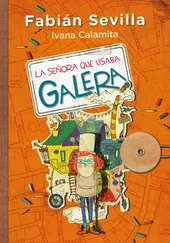• • •
H e notices that his front door isn’t locked, which is something he doesn’t usually forget to do. From the door he can see almost the entire apartment, and at first glance there doesn’t appear to be any sign of forced entry. He looks at the position of the cushions on the sofas, the pamphlets on the table, the two magazines on the counter next to his dirty dishes. His wetsuit, which is worth hundreds of reais and is, perhaps, the item of greatest interest to a thief, is still hanging on the clothesline in the laundry area. The folder where he keeps four hundred U.S. dollars and eight hundred reais in cash, among magnetic bank cards and personal documents, remains under the silverware tray in a kitchen drawer. He locks the door from the inside, keeps the shutters closed, sets out food and water for the dog, and goes to have a shower.
Later he sits on the sofa for a while, looking at his cell phone. He tops up his credits with a recharge voucher and dials a number.
Gonçalo?
His old school friend starts in with the usual interrogation about why he felt compelled to move to the coast out of the blue, but he quickly cuts him off. He asks Gonçalo if he is still working as a reporter for the newspaper Zero Hora . He says he is looking for any information at all about his grandfather’s death and tells him everything he knows: the year, the story about the unsolved murder at the dance, and the jumbled details that his dad told him about his move to Garopaba in the late sixties.
Man, are you really okay?
Listen, Gonça. Dad came here at the time and said he’d spoken to a police chief from Laguna who had supposedly come to look into the matter. But the folk here know fuck all, and no one at the police station is going to help me. The subject is taboo here, and I still don’t get why.
That’s going to be tricky. Didn’t your father have a death certificate?
No.
If that’s really what happened and a police chief actually did go to oversee the case, he must have started an inquest. But imagine the guy arriving, in 1967, in a fishing village that had just become a separate municipality, to deal with a murder without a culprit. To deal with a case of community justice. The only neutral witnesses were most likely hippies, and they were probably licking the sand, high on mushrooms. Or maybe the guy didn’t even start an inquest, or didn’t go to the trouble of finding a culprit. It was the people’s justice, period. That kind of thing used to happen a lot in small towns and still does. And even if he did conduct an inquest, I bet it’s sitting in some dead archive somewhere.
Okay, but is there a way to find out?
Look, I’ll talk to a friend of mine, a source in the Department of Justice. Maybe he’ll have a suggestion. I’ll get back to you, okay?
He washes the three days’ worth of dirty dishes piled up in the sink and then looks for something to eat. He hasn’t been shopping in days and doesn’t find anything nourishing in the kitchen except for a packet of peeled shrimp in the freezer. He thaws it and cooks the shrimp in salted water for a few minutes. He squeezes lime over them and eats them with the remains of a packet of crackers. He is doing the dishes again when his cell phone rings.
Hey, Gonça.
Hi. I talked to the guy.
What’d he say?
It’s like this, man. Let’s suppose it really was a police chief from Laguna. The guy may have started an inquest or not. If he did, he may have named a suspect or not. Sometimes there is no one to name, or sometimes an agreement is struck because there are important people involved, that kind of thing. Okay? At any rate, the police chief has to refer the inquest to the Department of Justice. The judge sends it to a public prosecutor even if there are no suspects. When there is a suspect, the prosecutor seeks an indictment. When there isn’t a suspect, he can either ask the investigators for further information or request that the case be archived, which is most likely in this nobody-knows, nobody-saw-it kind of crime. It’s the judge who makes the final decision.
Right. So you think it must have been archived straight off, then?
It’s most likely. If there was an inquest. So let’s consider this hypothesis. The guy had it archived. In 1969. So what happens forty years later? What matters now is that the case has two destinations. One copy has to go to the civil police archives. After twenty years the statute of limitations expires, and if no one has reopened it, the police send it to the state public archive. Right?
Right.
And another copy goes to the state court.
So all I have to do is go to those archives?
In theory, yes, but here’s the thing. The archives should be kept forever, but in some cases the states get authorization to have them incinerated because they take up a shitload of space. You’ll have to see what the story is in Santa Catarina. The upshot is that if there was an inquest and if it was correctly archived and if it hasn’t been incinerated or lost in the last forty years, you might find it — if you’re lucky and you look properly and talk to the right people.
Right. And…?
That’s it.
Okay.
Did you get it all?
I didn’t get anything, to be honest.
What part?
I dunno, I’ve already forgotten everything. I don’t know how you memorize all that crap. You’re a journalist. I’m dumb. Any chance you could e-mail it to me?
Fuck, man.
Sorry. It’s the state archive, right? Civil police.
Look…
Gonçalo thinks for a moment on the other end of the line.
Look, leave it with me. I know how to talk to these people. I’m snowed under covering the traffic department scandal here — have you seen what’s going on? They siphoned off forty-fucking-four million. It’s blowing up in the governor’s face — but as soon as I have a minute to breathe I’ll make a few calls and try to get something for you.
Great. Thanks. Thanks a lot, Gonça.
No problem. You’ve done me lots of favors. It’s my pleasure. I think I might even owe you money.
You don’t owe me anything.
I’m going to visit you there one of these days.
Do. Bring the girls.
Man, Valéria’s so big. You won’t believe it. And you should see her typing on a keyboard. It’s frightening.
Is she, what, seven now?
Six. But she’s like a little grown-up. She only acts like a kid when it’s convenient. What about you? I heard about your dad. That was pretty heavy shit. I didn’t find out until ages afterward. I’m really sorry.
Thanks. Everything’s fine. It was fucked up, but it’s over. You still swimming?
Me? Fuck no. Just smoking like a chimney and drinking nonstop. It’s over for me.
No, it isn’t. You just can’t allow yourself to fold, Gonça.
It’s too late for me. How’re you doing?
I’m great. I’m working at a gym here, I can swim in the ocean whenever I want, and I can keep to myself. I really want to see this thing with my granddad through.
But is there any special reason why you want to dredge it all up?
As he thinks about his reply, he looks at Beta, who is asleep on the living room rug, kicking her back paw, perhaps struggling to remain in a dream.
There is. But I don’t know how to explain it.
Did your dad ask you to?
No. Or maybe he did ask without asking. You know? Or maybe I just decided I had to know, and now I have to know.
Okay. Don’t sweat. We’ll find something.
Thanks, Gonça.
I’ll call you as soon as I’ve got something to tell. Take care there, swimmer.
You too.
• • •
T he running group now has four members. The other three were brought by Sara. Denise, her best friend from the pharmacy, is overweight but has a lot of willpower and is immune to tiredness. Clóvis wears glasses and seems like an intellectual sort. He doesn’t know how to explain what he does for a living but he has a state-of-the-art watch with a heart-rate monitor and a GPS that costs several hundred dollars. Celma is a slender, elderly woman who runs a home bakery business specializing in banana and muesli pies and delivers her wares to her customers by bicycle. They all meet three times a week in front of the Embarcação Restaurant at seven in the morning with still-sleepy bodies and tight muscles. Sara always gets out of her car in the same way. She activates her car alarm and approaches the group with a focused, studied air, as if she cannot forget that she has an important part to play on a stage. By the time she has walked down the ramp, she is already in character. She loosens up, laughs with her eyes, and shakes her ponytail, clapping her hands and encouraging the group. Shall we go, then? Let’s shake a tail feather?
Читать дальше












